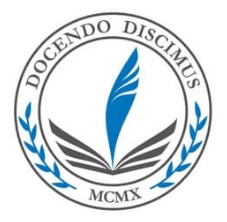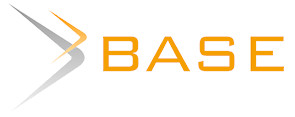Please use this identifier to cite or link to this item:
https://rep.vsu.by/handle/123456789/16251Full metadata record
| DC Field | Value | Language |
|---|---|---|
| dc.contributor.author | Любченко, О. А. | - |
| dc.date.accessioned | 2018-07-27T13:25:25Z | - |
| dc.date.available | 2018-07-27T13:25:25Z | - |
| dc.date.issued | 2018 | - |
| dc.identifier.citation | Искусство и культура. – 2018. – № 2. – С. 107-112. | ru_RU |
| dc.identifier.issn | 2222-8853 | - |
| dc.identifier.uri | https://rep.vsu.by/handle/123456789/16251 | - |
| dc.description.abstract | В учреждениях образования, которые обеспечивают подготовку специалистов высшей квалификации, умения и навыки взаимодействия с информационными массивами в соответствии с современной образовательной парадигмой формируются в рамках компетентностного подхода. Предлагается обратиться к положениям средового подхода и рассмотреть его в качестве методологической основы формирования информационной компетентности специалиста, так как они в полной мере отражают практические аспекты функционирования современной библиотеки учреждения высшего образования. = In higher education institutions that provide training for highly qualified specialists, the skills and experiences of interaction with information streams in accordance with the modern educational paradigm are shaped within the framework of the competence approach. It should be noted that specialists of a certain profession need information competence (IC), taking into account the specificity of their future professional activity, which acts as a key or even super-subjective competence (the shaping of other competences depends on the level of its formation). A number of works by modern researchers are devoted to the consideration of various techniques used by practical librarians in the shaping information competence. However the tendency of recent years is the outflow of library users, including university students, which indicates a lack of understanding of the role and place of the modern library in creating an individual user information field. This fact is a direct proof that existing approaches to the formation of information competence do not bring proper results. Therefore, libraries should seek new methodological approaches that would help to identify alternative ways to solve the current problem. At this stage, we propose to address the provisions of the environmental approach and consider it as a methodological basis for shaping the specialist information competence, since they fully reflect the practical aspects of the functioning of the modern library of higher education establishment. | ru_RU |
| dc.language.iso | ru | ru_RU |
| dc.publisher | Учреждение образования «Витебский государственный университет имени П. М. Машерова» | ru_RU |
| dc.subject | информационная компетентность | ru_RU |
| dc.subject | информационная культура | ru_RU |
| dc.subject | вузовские библиотеки | ru_RU |
| dc.subject | методологический подход | ru_RU |
| dc.subject | информационные массивы | ru_RU |
| dc.subject | средовый подход | ru_RU |
| dc.subject | современность | ru_RU |
| dc.subject | information competence | ru_RU |
| dc.subject | university libraries | ru_RU |
| dc.subject | methodological approaches | ru_RU |
| dc.subject | environmental approach | ru_RU |
| dc.subject | library educational environment | ru_RU |
| dc.title | Средовый подход как методологическая основа формирования информационной компетентности студента | ru_RU |
| dc.title.alternative | Environmental Approach as a Methodological Basis for Shaping the Student Information Competence | ru_RU |
| dc.type | Article | ru_RU |
| Appears in Collections: | 2018, № 2 (30) | |
Files in This Item:
| File | Description | Size | Format | |
|---|---|---|---|---|
| 107-112.pdf | 821.41 kB | Adobe PDF | View/Open |
Items in DSpace are protected by copyright, with all rights reserved, unless otherwise indicated.
Ресурсы наших партнёров:
Репозиторий Белорусского национального технического университета
Электронная библиотека Белорусского государственного университета
Электронная библиотека Гомельского государственного технического университета имени П.О.Сухого
Электронный архив библиотеки МГУ имени А.А. Кулешова
Репозиторий Полесского государственного университета
Электронная библиотека Полоцкого государственного университета
Научный репозиторий Могилевского института МВД Республики Беларусь









